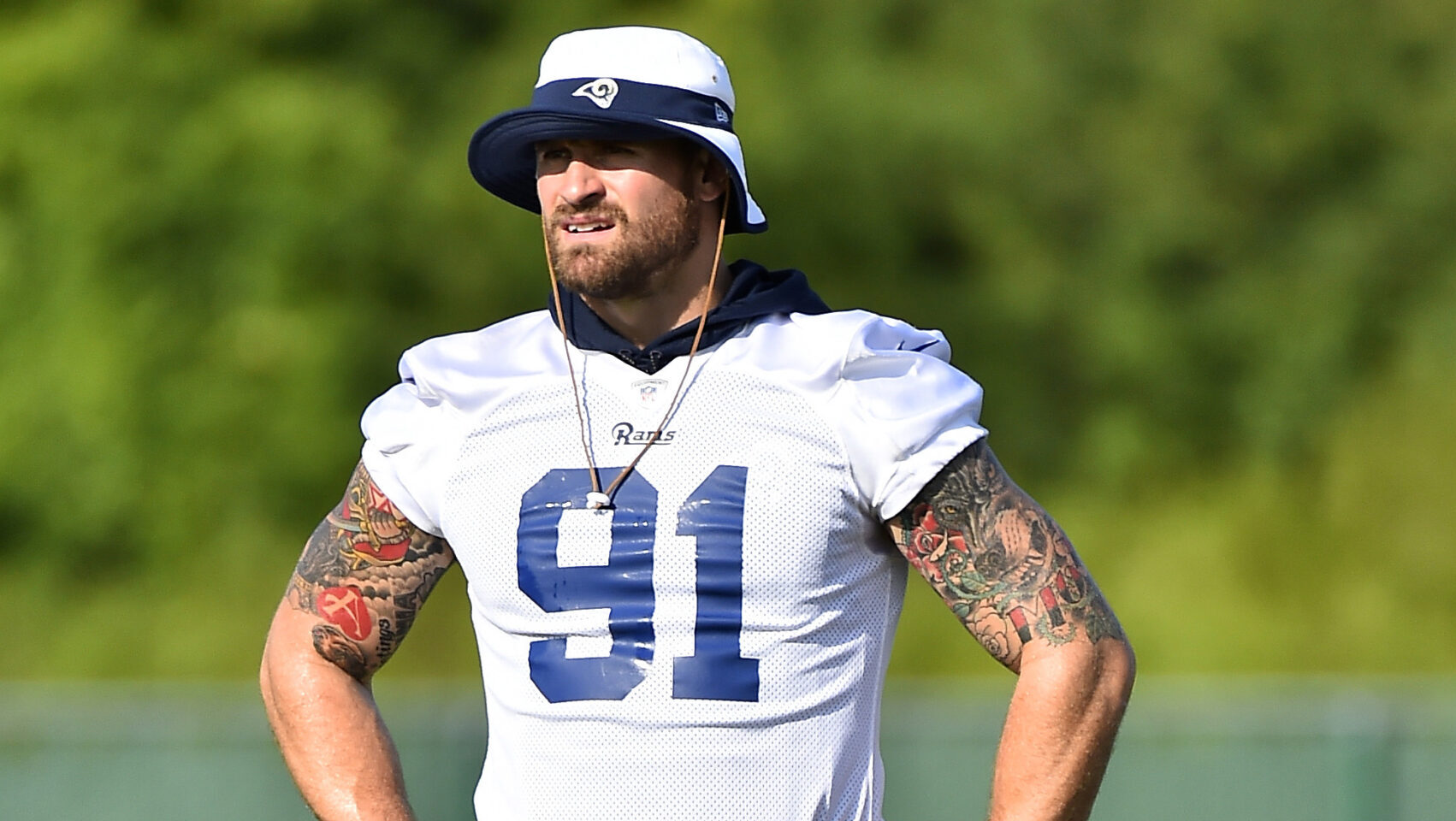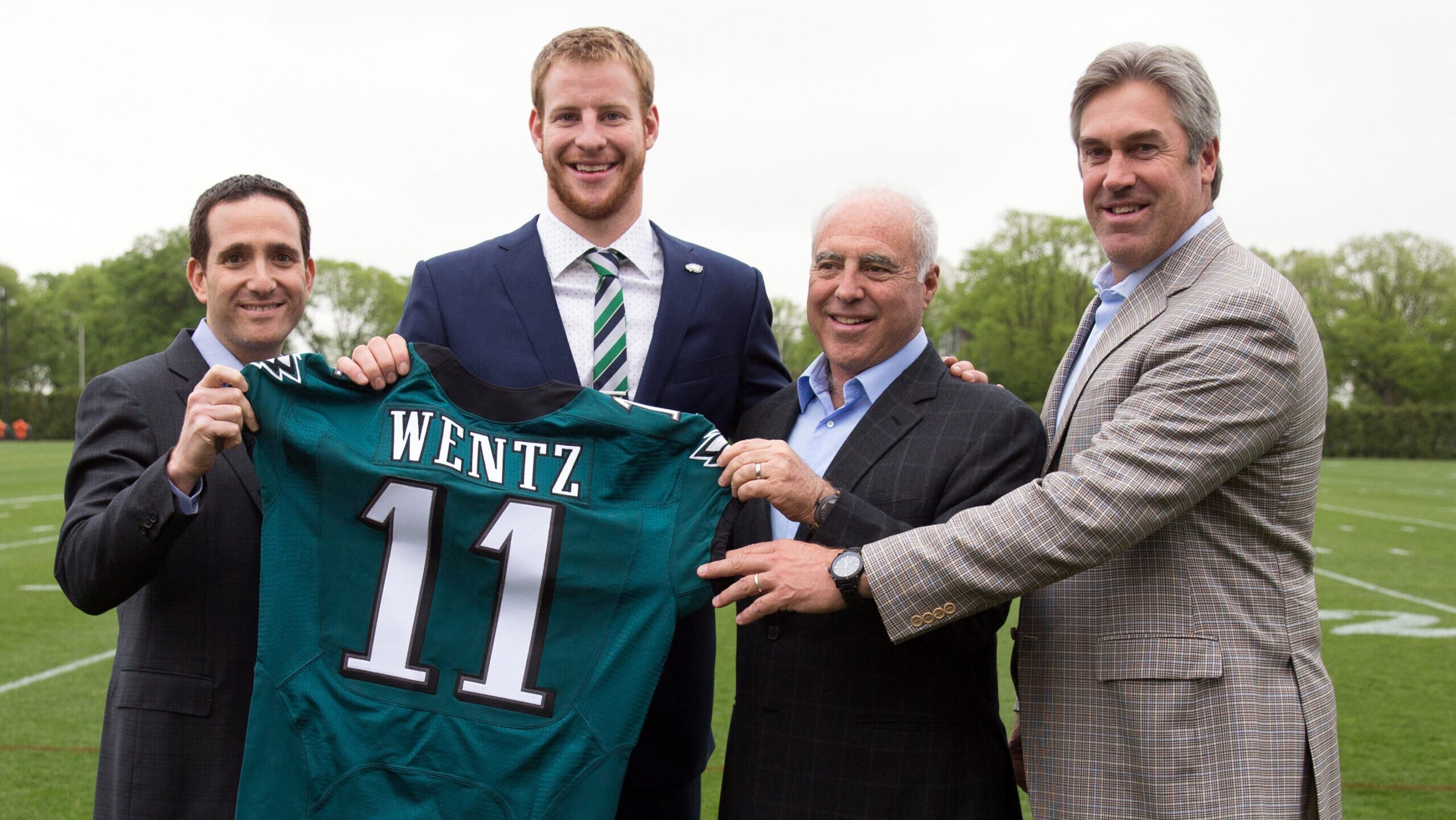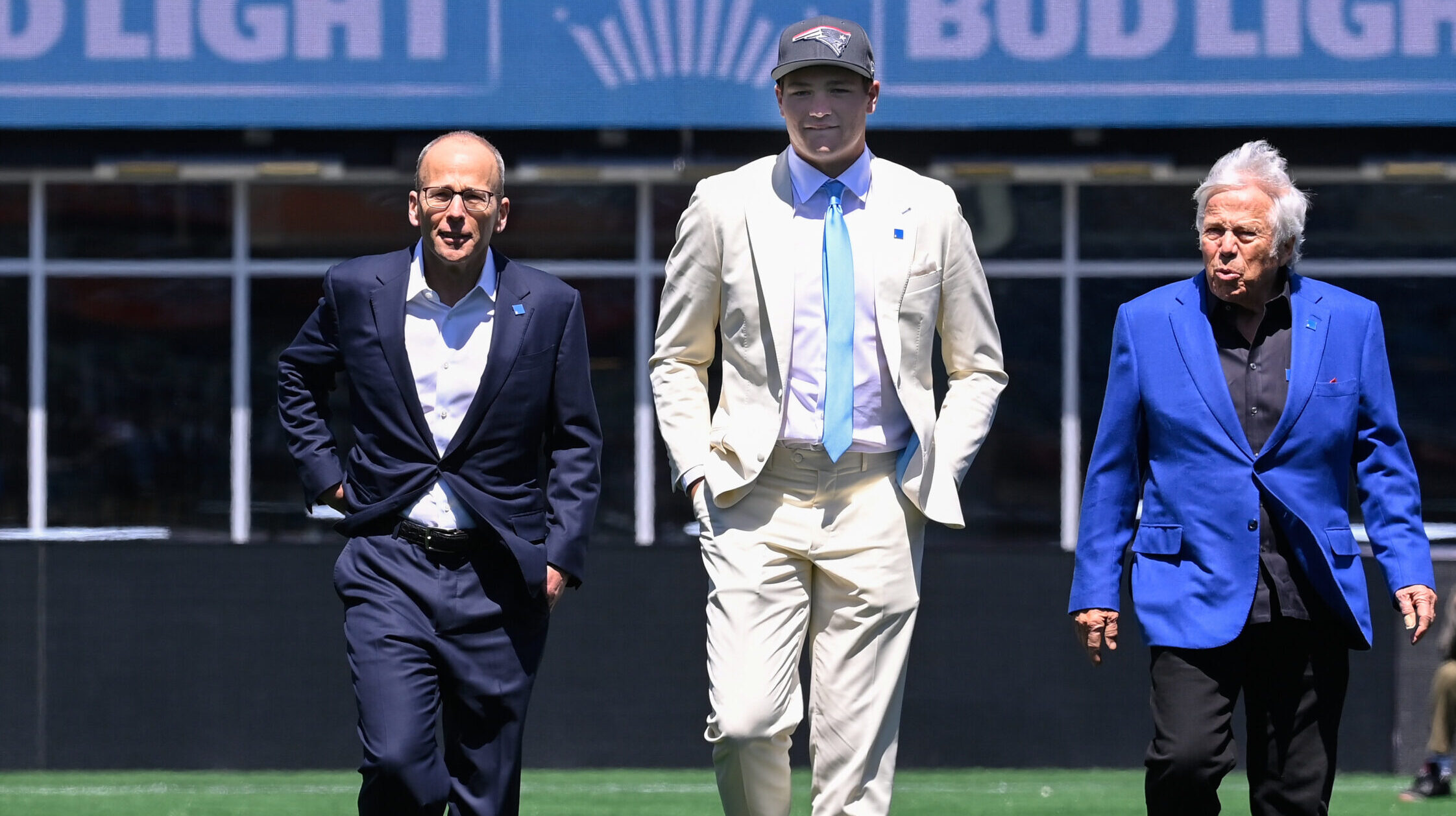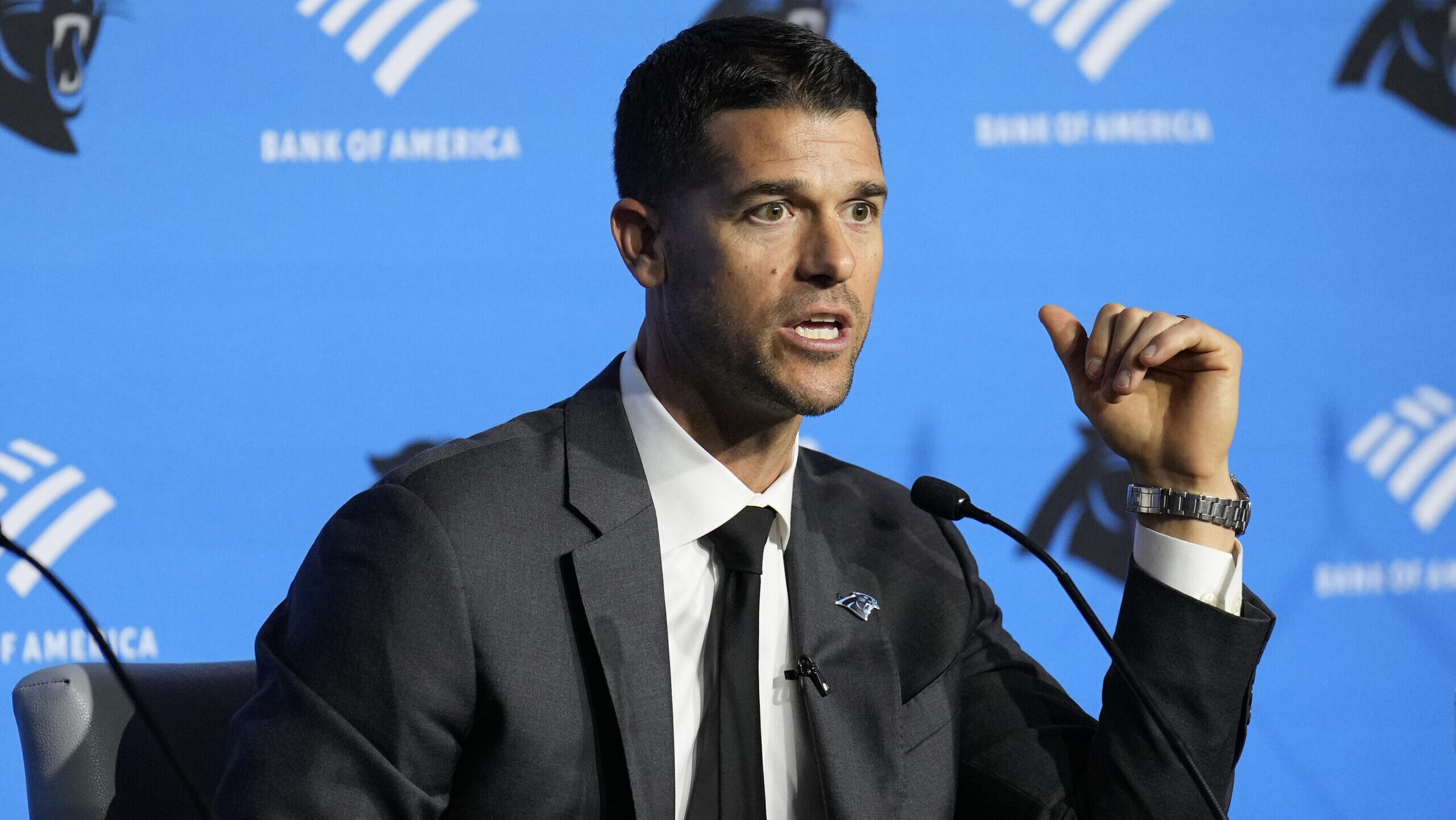Analysis
9/20/22
13 min read
Quick Slants: NFL's Most Important Stat to Winning
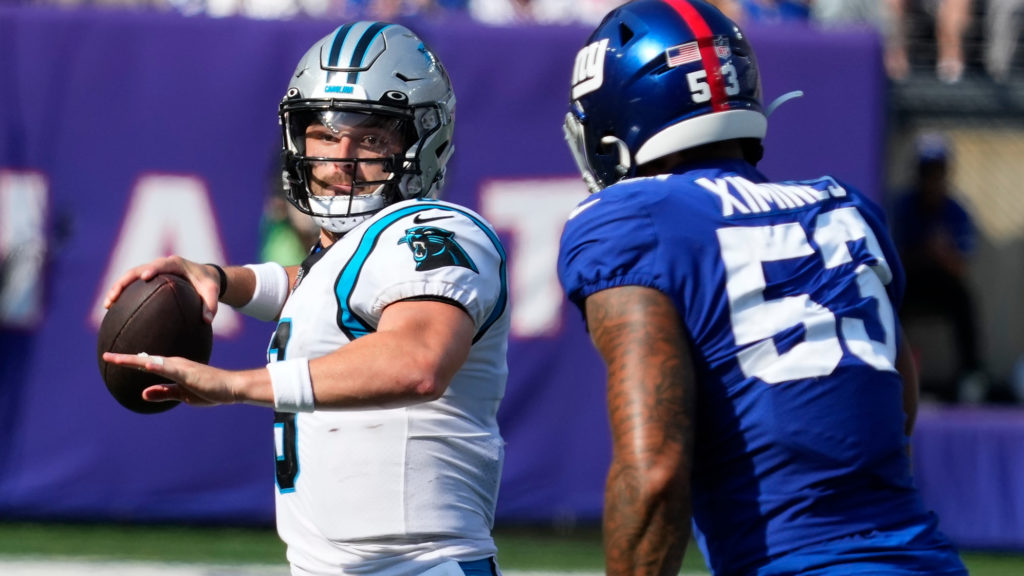
Winning the turnover battle is the key to victory, right? If you are one of the many who believe this, you are mistaken.
The more accurate metric is actually yards per passing attempt. Since 2000 (not counting the first two weeks of 2022), the team to win that battle in the regular season has won 73 percent of the time. It's one of the reasons the game has moved away from running and more toward passing. And it’s deciding outcomes.
The notion that teams need to establish the run early in order to play-action pass is partially correct. Play-action passing is much more effective than just dropping back and throwing the ball. So people are right to emphasize its importance.
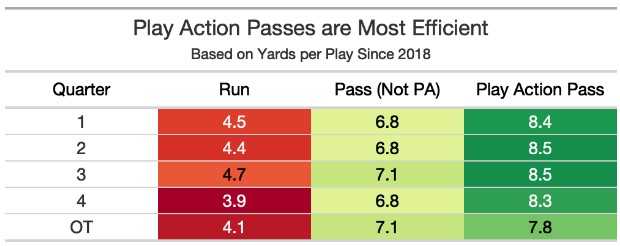
What's interesting, however, is that it doesn't matter whether you run on the first play of the game or the last. It doesn't matter if you've run well or you run poorly. It doesn't matter if you run a lot or a little. Play-action passing still works and it contributes to having a higher average per pass attempt than your opponent, which in turn means you have a chance of winning close to three quarters of your games.
As you watch the games and listen to the analysis and you wonder why some teams do certain things and others don't, this is what's driving a lot of the more progressive analytics-thinking teams. (Although, we need to remember, quality control coaches for 50 years have been providing a version of analytics; we've just added some categories and some complexity.)
So, when you see teams come out throwing early, they're doing it with purpose because, statistically, 78.3 percent of NFL games are won by the team that leads at halftime. There has been so much conversation about fourth-quarter comebacks in the first two weeks this season, including three massive ones by the Dolphins, Cardinals and Jets in Week 2. But what is most important is getting a halftime lead. If you do that, you've got a chance to win four out of every five games.
The AYPA in the NFL last season was 7.24. So, if you're throwing 20 times and you have just 100 yards passing for an average of 5 yards per attempt, you're almost guaranteeing your team will lose. The quarterbacks below had fewer than 6 yards per attempt in their Week 2 games, and not coincidentally, all in losing efforts.
| Week 2 | Attempts | Yards | Yards/Attempt |
| Jameis Winston | 40 | 236 | 5.90 |
| Joe Burrow | 36 | 199 | 5.53 |
| Mitch Trubisky | 33 | 168 | 5.09 |
| Baker Mayfield | 29 | 145 | 5.00 |
| Kirk Cousins | 46 | 221 | 4.80 |
| Davis Mills | 38 | 177 | 4.66 |
Some of that is on the quarterbacks, but a lot of it is on the play-callers. Oftentimes, when the backup enters a game, the head coach or offensive coordinator will get more conservative in his play calls, but they're making it almost impossible to win the average-yards-per-attempt battle. So a backup QB is behind for two reasons. One, he’s a backup and not as talented as the starter. And, two, the conservative play-calling is contrary to what's most likely to create a victory.
Evaluating Head Coaches
It's always interesting to look at the first- and second-year head coaches and see how they're doing and evolving. Each game is influenced more by the coaches than we realize.
When I was running the Eagles and the Browns, I used to say that fans would be shocked if they realized how many games were decided on Tuesdays rather than Sundays, because Tuesday is the day when most game plans are finalized. You see that play out on Sundays when the announcers blame the players for poor execution, and, of course, they matter quite a bit. But no one focuses much on the game plan that was set out on Tuesday.
Mike McDaniel, Dolphins: McDaniel is off to a great start. He really is doing what many thought he would when he came over from San Francisco and brought with him the 49ers’ offensive scheme. I overlapped with Mike a little bit in Cleveland. He is a smart, young guy. He's got a little bit of a quirky personality, but that's kind of fun.
The Dolphins need to get aggressive early in games and figure out how to play defense a little bit better. Before the season, I thought they had a chance to be one of the teams moving up on the right track, and it appears they are.
The Dolphins employed an aggressive strategy around acquiring weapons this offseason, which will serve them well in the short term. But if they’re going to have sustained success, they need to improve both of their lines significantly. We’ll see how that plays out, but so far, you have to believe McDaniel was a good hire.
Doug Pederson, Jaguars: Pederson got Jacksonville playing well in the second week of the season against a Colts team that we all thought was going to be pretty good and compete in the AFC South. Doug has really got the team playing smart, and we’re starting to see something in Trevor Lawrence that we had hoped to see when he was drafted. I think the coaching staff deserves credit for bringing that out of the second-year quarterback.
Brian Daboll, Giants: Maybe the most surprising one on this list is Daboll, who hired one of the most talented staffs of all the new head coaches. The team is still very deficient in terms of talent on the roster, and by the end of the year, I suspect that will show. They should continue to make progress, but probably won’t have a real chance to contend for the playoffs.
To me, the most impressive thing is his fearlessness in decision-making; aggressive coaches are winning in this generation. He's shown he doesn’t care about what people think or about people who are going to second-guess him. I think that's a really, really good sign for where the Giants are headed under his guidance.
John Harbaugh, Ravens: Harbaugh is a veteran coach but there’s a connection here. I worked with John for a dozen years and he is a close friend and one of the very best people and coaches in the NFL. But he took a major chance this off-season when the decision was made to move on from DC Wink Martindale, which is why I'm mentioning him here next to Daboll and the Giants, where Martindale is now coaching.
So far, the Ravens’ defense is leaving a lot to be desired. Time will tell if that's just growing pains, but I'm fearful it's not, because they're not playing the kind of aggressive defense they’ve been used to under Wink. I think if you traded Wink for Mike MacDonald (the new DC in Baltimore), the Ravens would be 2-0 instead of 1-1.
I was asked for years when I got to the NFL what surprised me most about the league. My answer, without hesitation, was always the impact both coordinators made on the team. It's not that I didn't realize how important they were, but I underestimated their impact. It’s pretty obvious when you see the before and after of what’s happened in Baltimore with Wink moving on to New York.
Robert Saleh, Jets: I know the Jets beat the Browns on Sunday, but I was not impressed with Saleh’s coaching. Playing those soft zones so often, they're going to give up a lot of points. Although they scored 31, I wasn't that excited by what I saw on offense. That line has a long way to go.
Nathaniel Hackett, Broncos: When you watch a coach, you want to see somebody who is very well-organized, detail-oriented, has control over everything, is very calm, smart, and consistent. We're not seeing any of those things from Hackett.
Now, that could come with time, but I’m concerned he just does not have the kind of attention to detail all the great coaches do. So, if I was in Denver, I'd be worried about the direction the team was headed and whether or not the right guy was hired from the coaching search.
Time-Management Mistakes
Continuing our weekly diagnosis of poor time-management decisions, here are some from Week 2:
Mike McCarthy, Cowboys: The third-year coach actually made two blunders on Sunday.
The first came just before halftime when he used his final timeout with 25 seconds remaining before the end of the half. The Cowboys had a first-and-10 from the Cincinnati 39, and instead of Cooper Rush running up and spiking the ball or running a play, McCarthy called for the timeout.
If they had spiked the ball, they would have only given up another 7 or 8 seconds and retained their final timeout in order to give themselves the option to throw across the middle to set up a more manageable field goal attempt, or take one shot at the end zone before the half. Instead, they settled for a 54-yard field goal attempt that succeeded but only with a bit of luck.
The next was a similar situation with 24 seconds remaining in regulation in a 17-17 tie. The Cowboys had just made it to the Bengals’ 35-yard line before calling their final timeout. From there, it would have been a 52-yard game-winning field goal attempt.
On the first play out of the timeout, Dallas ran a sweep to the wide side of the field. Running back Tony Pollard was able to squeak through a small gap and gain 3 yards before the Cowboys had to rush to the line of scrimmage and spike the ball to set up a 50-yard field goal try. If Pollard had lost yardage on that play, Dallas would have been staring down a FG attempt of at least 55 yards instead of a more manageable 52-yarder.
McCarthy clearly hasn’t learned from his mistakes in the wild-card round a year ago.
Nathaniel Hackett, Dolphins: The Broncos’ first two weeks with their new regime have been headlined by Hackett’s lack of time management skills. The Monday Night Football fiasco in Week 1 is just the tip of the iceberg, unfortunately.
Midway through the third quarter on Sunday, the Broncos faced third-and-1 from Houston’s 35-yard line. Hackett decided to call an option play to the wide side of the field. Russell Wilson handed the ball off to the fullback, who led the option and ultimately took a 1-yard loss. After this questionable play call, Hackett hesitated in making his decision on whether to go for it or kick the 53-yard field goal. That hesitation led to the kicking team taking too long to get onto the field and a delay-of-game penalty. After the penalty, the Broncos elected to punt the ball away rather than try a 58-yard field goal, which, as many pointed out on social media, was 6 yards closer than the 64-yard attempt they tried a week earlier in Seattle.
Hackett is just two games into his tenure as Denver’s head coach, but he already has Broncos fans criticizing his decision-making abilities.
Stop Rushing Three
I say this sort of jokingly, but I think it should be included in every defensive coordinator's contract that they can't rush only two or three defenders. They just can't do it. The stats are so horrible on the outcome. We saw some of the biggest game-deciding plays in Week 2 when coordinators decided to rush two or three and let the quarterback sit back and pick apart the defense.
In Las Vegas, Arizona made a huge 2-point conversion to keep it a one-possession game midway through the fourth quarter; the Raiders rushed three. On the play where Tampa Bay finally took the lead for good against New Orleans – three-man rush. Baltimore gave up touchdowns late in the game on a two-man rush and a three-man rush.
The likelihood of giving up big plays and touchdowns when there are only two or three rushers is crazy, especially in the red zone. This year, teams have scored on 33 percent of snaps in the red zone when the defense rushes three or fewer defenders compared to just 20 percent when rushing four or more.
Just don't do it. You can confuse opposing offenses with four- or five- or six-man rushes, not three.
Now, it's true that in the last play of the game in Cleveland, the Jets only rushed one player and Brissett threw the interception that ended the game, but I'll take the odds of never doing that and never paying the price vs. the benefit of rushing more than three guys any day.
Quick-hitters
Something not many outside of Philadelphia are talking about: People shouldn't forget that the Eagles own the Saints’ first-round draft pick next year, which appears like it has a chance to be a much higher selection than we thought when the trade was made. The combo of questionable coaching and poor QB play have the Saints looking like a team that could have a long year.
Niners’ dumb luck: Anyone who’s run an NFL team – if they are being honest – would tell you that winning in the league takes smarts as wells as lucky breaks. What happened to the 49ers this week is one of the luckiest breaks I’ve ever seen. San Francisco tried hard to move Jimmy Garoppolo in the offseason; it was not their intent to have him return.
Certainly if they got the right contract and salary they’d bring him back because there was nothing to lose. But now, they went from what would be a disaster with the loss of Trey Lance to still having a really good chance to have a great season in a weak conference.
So, luck is sometimes better than smart.
Bears rebuilding correctly: Linebacker Roquan Smith is a good player if you watch the tape. He held out all training camp trying to get a huge contract. He's playing a position that isn't among the most important, and he's good. He's not great. So it's going to be a really hard decision for the Bears when he hits free agency after the season. If it were up to me, I wouldn’t pay him like a top-tier player
The new Bears front office went into a season the way you should go into one with the first year of a new administration. You have to get your cap in shape and your roster fixed, and you must put your young players on the field so you can develop them.


